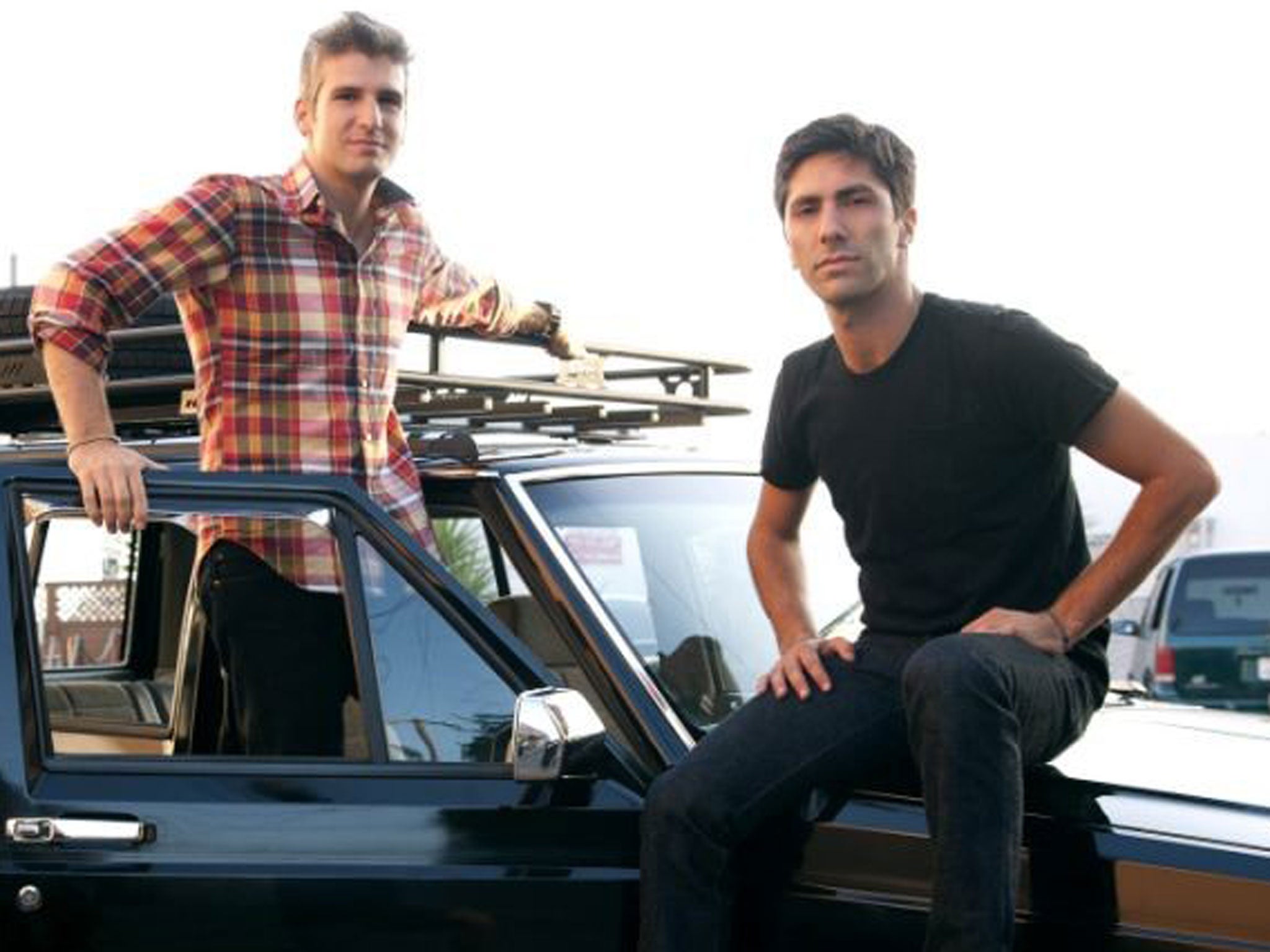Grace Dent on TV: Catfish
I have to admire any show that tackles the multi-layered weirdness of our lives on the internet

Television feels strong again of late. Punchy and confident. ITV's Broadchurch began this week, with David Tennant and Olivia Colman bickering on a beach in Britain's least inviting seaside town. Donkey rides, 99 cornets and a dead local child found face-down in the sand. It's The Killing with the cast of Doc Martin. It's Twin Peaks with buckets and spades. I watched the first three episodes on preview DVDs without stirring. Will Mellor from Two Pints of Lager… cast quite ingeniously as a local loner and psychic. Pauline Quirke as a malevolent, caravan-dwelling busy-body, sabotaging police enquiries. Joyous casting. Oh, and here's Vicky McClure from This Is England as a slippery, brass-necked journo.
Another TV gem on its way on 17 March is comedian and actor Kevin Eldon's new sketch show, It's Kevin, on BBC2. Each episode delivers a hypnotic, oddly soothing 30 minutes of unfettered madness. I have never seen its like, but if I was pushed I'd put it on the same shelf as BBC Scotland's Limmy's Show. It's Kevin has an all-singing, multi-character, two-minute opening number – and the titles run to the sound of a pneumatic drill. Characters get stuck on words midway through sketches and carry on repeating them like stuck vinyl for far longer than one's brain finds comfortable. I love its peculiarity.
But while I wait for more deliveries of these shows, I've been wholly suckered in by the new MTV series Catfish, based on the 2010 movie of the same name, which investigates love on the internet. Or, more accurately, the truth behind the avatar that types to say it loves you. Spoiler: The person you Skype, Twitter direct message, Facebook chat, and may even now have started to chat with on the phone, might not be the lithe, popular, 22-year-old “professional underwear model” clutching a French bulldog puppy in his vast Docklands penthouse that his avatar claims him to be.
Yes, I know you know this. My readers are an alert, erudite, streetwise brood who know instinctively that if something sounds fishy, looks fishy and stinks like 3lbs of Best By Feb 2013 smoked haddock left in a jockstrap, then yes, it's a catfish situation.
Crucially, the majority of people – and I see this playing out every day – seem to take situations on the internet very much at face value. Catfish is excellent because the pay-off is never obvious. That underwear model doesn't always transpire to be a 28-stone trucker. He is sometimes a she. Or he's the victim's ex-girlfriend in a laborious revenge game. Or he's a gang of people who have divided the relationship up into shifts. Or he's actually a benevolent relative thinking he's doing the victim a favour. Or an accomplished catfish with a dozen different accounts on the go, treating his fellow human beings like a giant Choose Your Own Adventure game.
So although I'm sure that many smug sorts discard MTV's Catfish as trashy teen-fodder – and there's an argument doing the rounds that it's staged – I do admire any real effort by TV makers to tackle the multi-layered weirdness of our daily lives on the internet. It will take, I'd guess, 20 years for television to cover accurately what is going on with the human condition when we sit for hours in beds, on sofas, one-on-one with our laptops, communicating intimately with the vast electronic hivemind. Twitter and Facebook heave with highly affable scam-artists and semi-professional stalkers, but I'm yet to see a TV drama, even one as powerful as Broadchurch, really nail the internet's weirdness. For example, those who are addicted to internet sympathy, who flood timelines with tales of non-existent woe and tragedy and lap up the attention. Or people addicted to internet meanness, hovering around newspaper comment boxes and celebrity Twitter accounts spewing out dark-minded bile. Who are these normal, everyday folks who come in from the school run, tuck their kids up in bed and then pop on the internet for an evening of anonymous abuse and spite? They can't all be played by Will Mellor or Pauline Quirke. These are our modern-day villains. The ones we don't know how to deal with yet.
In Catfish, Nev and Max deal with the villains with calmness, sympathy and offers of support. “Maybe you should just shut down some of your fake accounts,” Max suggested last week to a particularly heartless girl who'd been luring loners by pretending to be a Miss Teen USA. “Maybe,” continued Max, “if you put as much effort into making your real life as awesome as your fake lives, you'd be a lot, y'know, happier.
My speech, if I presented Catfish, would have been a little more salty, with points where I had both hands on the girls shoulders, shaking her until her scrunchie fell out. In the closing scenes we were told she had now moved from New York to California, to live with a man whom she'd recently convinced on chat that she was a swimwear model. When she got off the plane, she was a different woman, but he saw the funny side. There's nowt as queer as Catfish.
Join our commenting forum
Join thought-provoking conversations, follow other Independent readers and see their replies
Comments
Bookmark popover
Removed from bookmarks